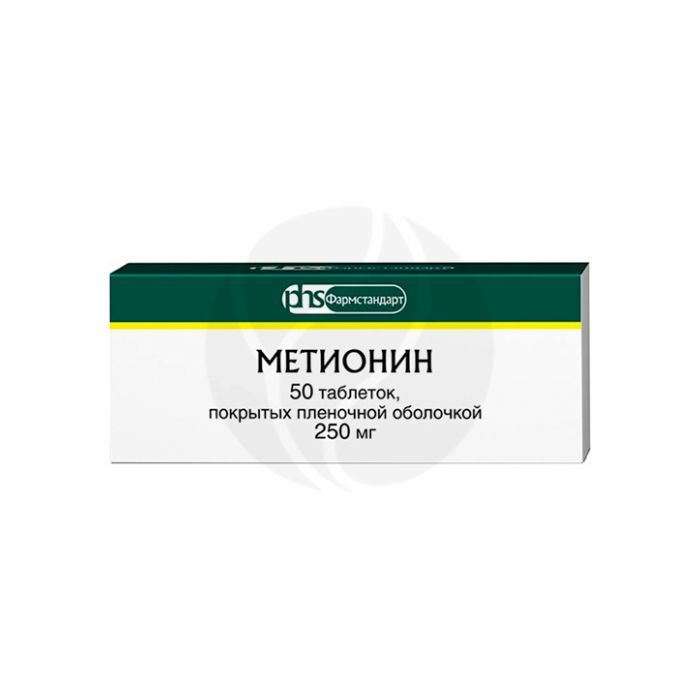Methionine tablets 250mg, No. 50
Expiration Date: 11/2025
Russian Pharmacy name:
Метионин таблетки 250мг, №50
Liver diseases (hepatitis, hepatosis, cirrhosis), occurring with fatty infiltration of hepatocytes;
prevention of toxic liver damage by arsenic, chloroform, benzene, alcohol;
protein deficiency of various origins in combination therapy.
Inside for adults, 0.5-1.5 g, for children over 6 years old, 0.25 g - 0.5 g 3-4 times a day 30-60 minutes before meals.
The course of treatment is 10-30 days or courses of 10 days with 10-day breaks.
Film-coated tablets of pink color with inconspicuous inclusions, round, biconvex; the cross section shows two layers with a noticeable difference between them.
1 tab.
methionine 250 mg
Viral hepatitis,
severe liver failure
hepatic encephalopathy,
hypersensitivity to the components of the drug.
The drug is contraindicated in children under 6 years of age.
With caution: renal failure (risk of increased hyperazotemia). It is not recommended to take methionine for viral hepatitis.
pharmachologic effect
An irreplaceable amino acid, a donor of mobile methyl groups for the synthesis of choline, phospholipids, implementation of a lipotropic effect. Participates in the synthesis of adrenaline, proteins, reactions of peremethylation, deamination, decarboxylation, etc. Participates in the exchange of sulfur-containing amino acids, adrenaline, creatinine, cyanocobalamin, ascorbic and folic acids, hormones, enzymes. Has a detoxifying effect. It has a metabolic, hepatoprotective effect. It is easily absorbed in the intestines, excreted in the urine in small amounts.
Side effect
Allergic reactions, nausea, vomiting (due to unpleasant smell and taste) are possible.
Application for impaired renal function
Contraindicated in viral hepatitis, severe hepatic failure, hepatic encephalopathy.
Application in children
The drug is contraindicated in children under 6 years of age.
special instructions
The drug should be administered in a balanced ratio with other amino acids. Unbalanced use of methionine in large doses can have a damaging effect on cells of the liver and other organs.
The drug does not affect the ability to drive a car and engage in potentially hazardous activities that require increased attention and speed of mental and motor reactions.
Overdose
Symptoms: decreased blood pressure, tachycardia, disorientation. Treatment is symptomatic.

